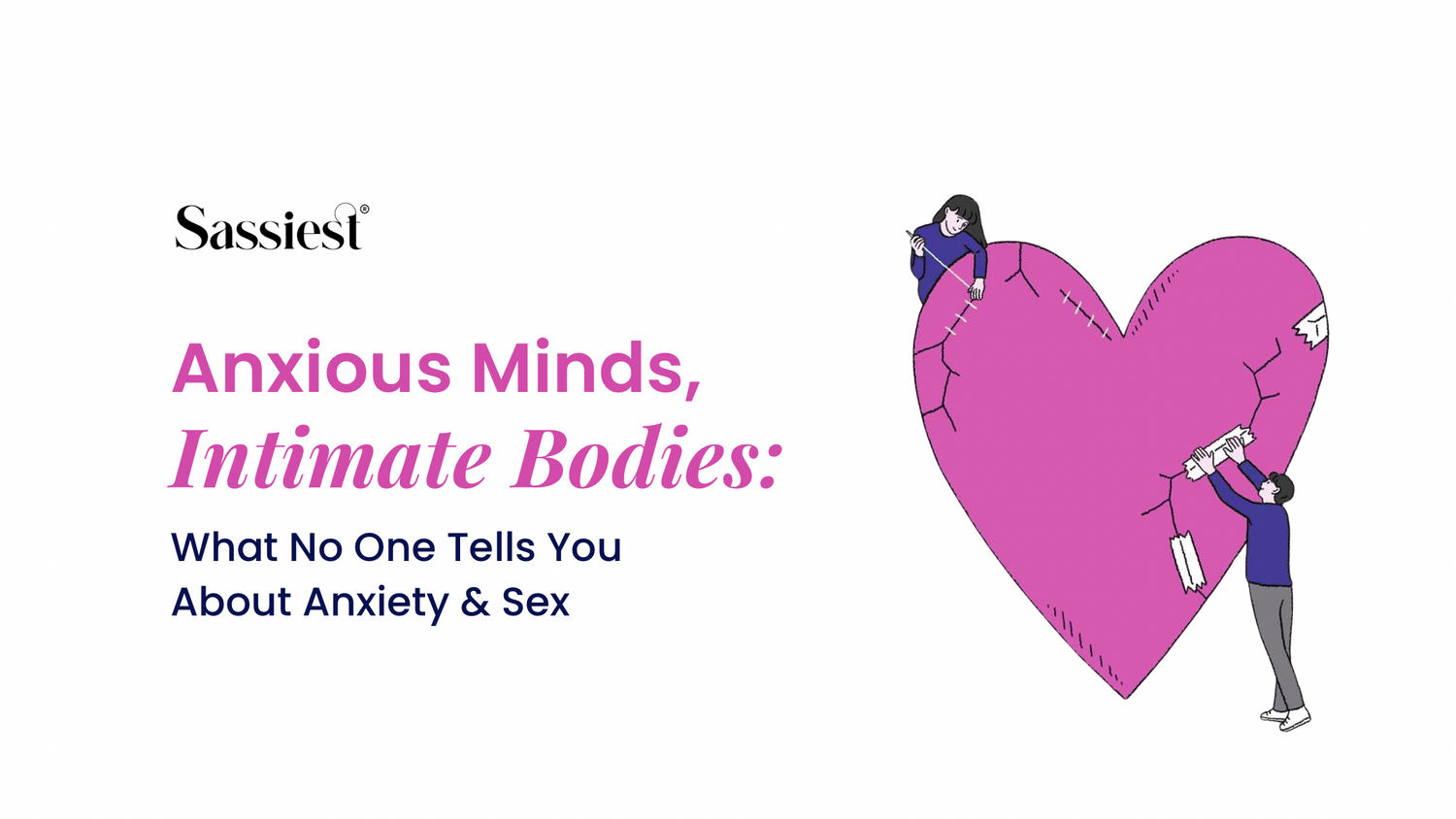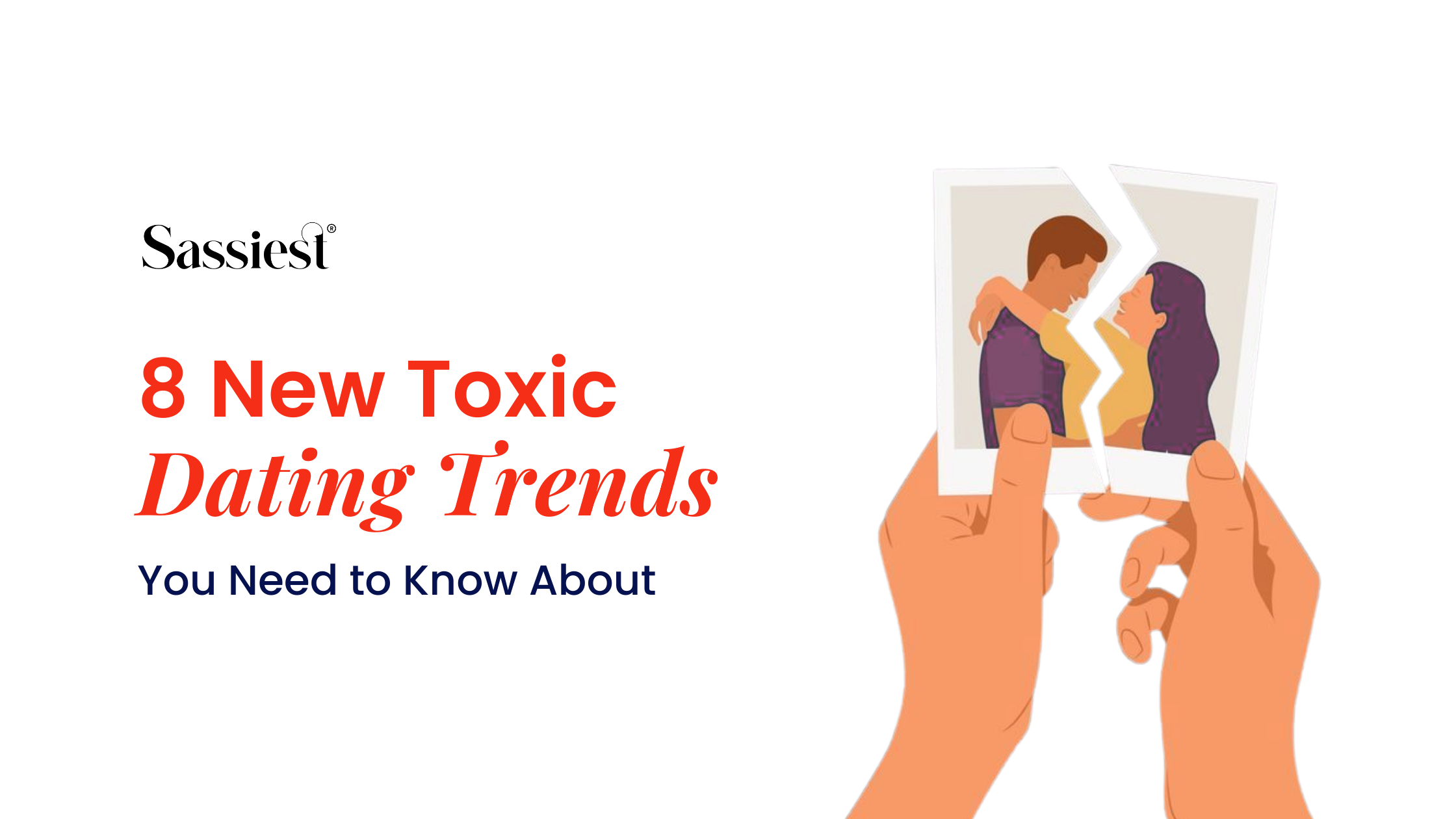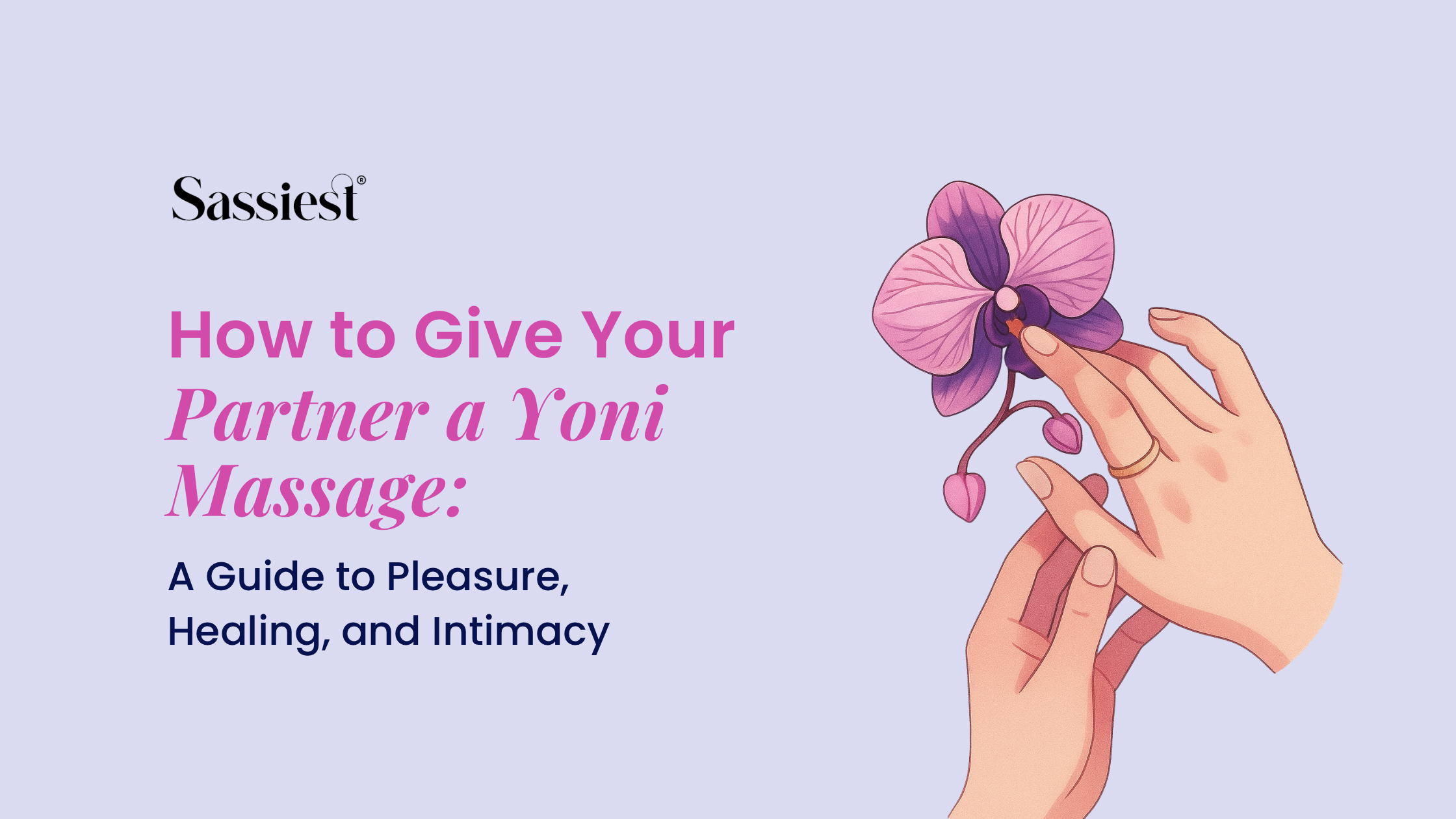We live in a time where therapy is on trend, #MentalHealth is trending, and people are (finally) opening up about anxiety, trauma, and burnout. We also live in a time of sex positivity, pleasure-forward wellness, and bold conversations about desire. But, somewhere in between these two evolving narratives, one critical conversation still gets ignored: What happens when anxiety enters the bedroom?

Spoiler: It doesn’t take off its shoes and wait politely outside the door. Anxiety gets into bed with you. It tugs at your thoughts mid-kiss. It turns up the volume on your insecurities. Sometimes, it shuts your body down completely. And other times, it convinces you that maybe sex is the only way to feel okay, even when you’re not. This isn’t dysfunction. This isn’t failure. This is real. And it’s happening to more people than we talk about.
The Science No One Talks About
Here’s something basic but wildly important: anxiety and sexual arousal operate on two completely different systems in the body. When you’re anxious, your nervous system flips into fight or flight. Your brain perceives threat, even when you’re safe, and starts pumping cortisol to protect you. Blood flows away from your core and your genitals and towards your limbs (in case you need to run). Your heart races. Your body braces. Your mind loops worst-case scenarios.

Now compare that to what sex requires: calm, safety, a sense of being held, trusted, soft. That’s parasympathetic mode, the exact opposite. So if you’ve ever felt like your body wants intimacy but your brain won’t shut up, or like you’re physically aroused but emotionally checked out, you’re not weird. You’re not broken. You’re just human, with a nervous system trying to protect you from a threat that isn’t there.
When Sex Becomes a Coping Mechanism
Anxiety and sex have a complicated relationship. For some, anxiety kills desire completely. For others, sex becomes a way to cope with anxiety. Yes, a quick escape from overthinking, a hit of dopamine, a moment of distraction. And yes, that can be comforting. It can even be healing when it’s conscious and consensual.

But, when it becomes the only way to self-soothe, especially in relationships where communication is lacking, it can start to feel like a bandaid on a bullet wound. The guilt, confusion, and shame spiral that follows? That’s where a lot of people get stuck and start undervaluing themselves.
We Need to Change the Conversation
In most sex ed, pleasure is presented as physical. In most mental health discourse, the body is an afterthought. But pleasure is mental. It starts in the brain. And if your brain is overstimulated, overwhelmed, or in a constant state of panic, of course sex is going to feel off.
So instead of asking “What’s wrong with me?” or “Why am I never in the mood anymore?”, maybe the better question is: “What does my body need to feel safe enough for pleasure?”
That could mean taking things slower, emotionally and physically, creating boundaries around sex while navigating anxious period, using masturbation not just for release, but as a form of grounding and body reconnection, being honest with your partner, even if that honesty is visibly messy, and of course, unlearning the toxic idea that sex = performance.
This Isn’t Just Personal. It’s Political.
In a society that rewards overwork, emotional suppression, and self-abandonment, choosing to prioritize your mental health during sex is revolutionary. It means saying: No, I’m not available just because we’re dating. No, I don’t owe anyone access to my body when my mind is spiraling. No, I’m not broken just because my body doesn’t respond the way porn says it should.
You don’t need to be calm, sexy, and orgasmic on demand. You don’t need to “fix” your anxiety before you deserve love or intimacy. Also, please remember that you definitely don’t need to perform pleasure to prove your worth.
So, Where Do We Go From Here?
We start talking. We start unlearning. We start making space for mental health inside our most intimate conversations. You see, healing doesn’t stop at the therapist’s office. It continues in how we touch, how we ask, how we show up, especially with ourselves.
If we want to build a world where pleasure is real, not performative, we have to start including the anxious, overthinking, emotionally tangled versions of ourselves in that picture too. You are not too much. You are not too complicated. You are just a human being, trying to navigate intimacy with an anxious mind. And if we’re talking honestly? That’s brave as hell.





